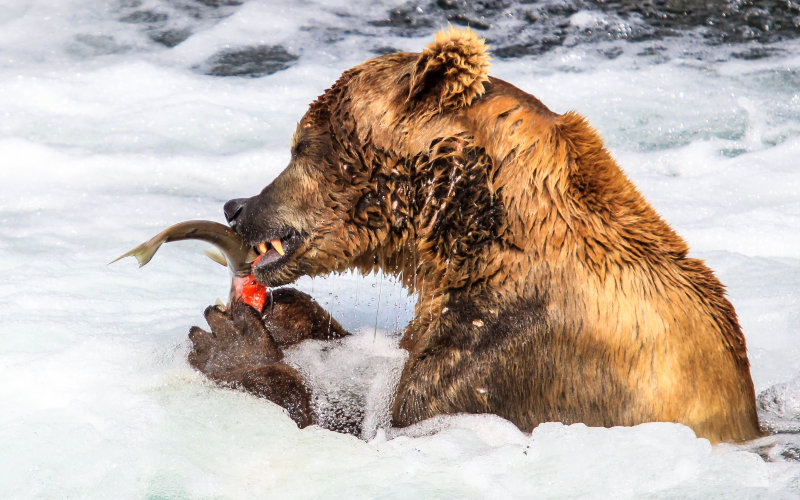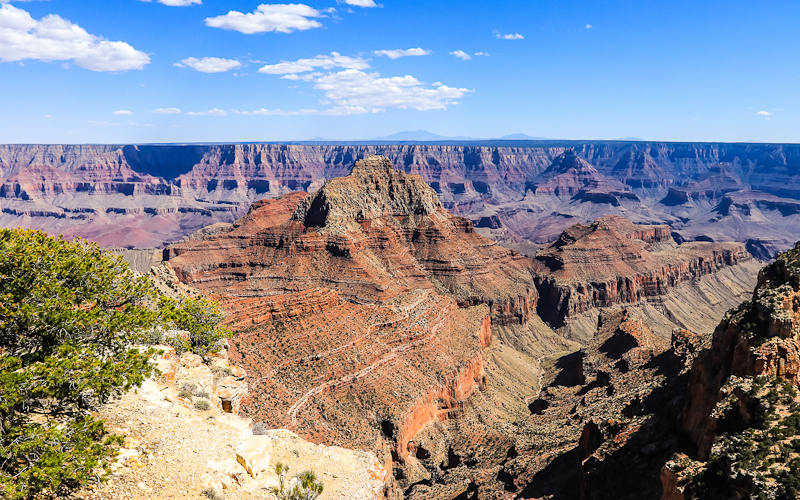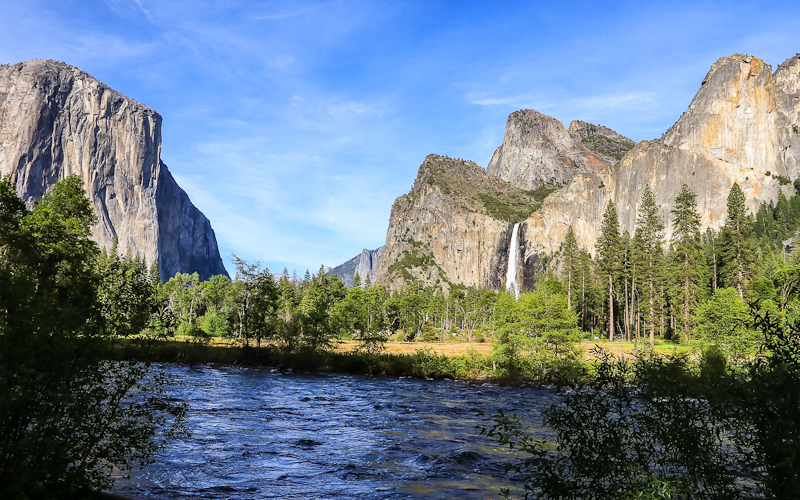Willkommen zum zweiten Teil des Gesprächs mit dem Autor von Spectacular in a Losing Effort
Nun, Jerry wie hat diese einschneidende Erfahrung, von der Du am Ende des ersten Teils berichtet hast, Deine Lebenseinstellung verändert?

Die Diagnose war sicherlich eine der schwierigsten Zeiten in meinem Leben, denn, wie ich bereits sagte, war es das erste Mal, dass ich über meine Sterblichkeit nachdachte.
Ich war erst 56, und ich war mir nicht sicher, ob ich die nächsten zehn Jahre meines Lebens in einem stickigen Büro in einem amerikanischen Unternehmen verbringen wollte, ohne all die Dinge zu erleben, von denen ich mein ganzes Leben lang geträumt hatte. Und aus diesem Grund begann ich, mein Leben völlig neu zu überdenken.
Warum hast Du Dich entschieden das ganze Jahr über in einem großen Wohnmobil zu leben?
Schließlich fasste ich den Entschluss, mein Leben zu ändern, jeden Augenblick zu nutzen, zu reisen und die Dinge zu tun, von denen ich schon immer geträumt hatte. Ich ging in den Ruhestand, verkaufte mein Haus und fast alle meine Besitztümer und beschloss, in ein Wohnmobil zu ziehen, um alle neunundfünfzig Nationalparks zu besuchen und zu fotografieren. Anfangs erschien mir das verrückt, sogar für mich, aber das Leben in einem Wohnmobil würde mir die Möglichkeit geben, das Leben in vollen Zügen zu genießen.

Wie schwer war es, sich an das Leben in einem Wohnmobil zu gewöhnen?

Obwohl das Wohnmobil, das ich gekauft habe, mit gut 12 m Länge ziemlich groß war, war der Wechsel von einem Haus zu einem Wohnmobil eine große Umstellung. Der Platz in einem Wohnmobil ist nur ein Bruchteil dessen, was ich in meinem Haus gewohnt war.
Ich musste auch die Feinheiten des Lebens im Wohnmobil lernen, nicht zuletzt das Fahren eines gut 12 m langen Fahrzeugs, das ein Auto zieht. Es dauerte einige Zeit, das zu meistern. Letztendlich habe ich mich einfach in mein neues Leben auf Rädern gestürzt.
Mit welchen Schwierigkeiten warst und siehst Du Dich dabei konfrontiert?
Ich denke, das Schwierigste am Leben im Wohnmobil ist, dass das Fahrzeug selbst natürlich nicht so stabil ist wie ein Haus. Pannen und Reparaturen sind immer möglich, und man muss sich darum kümmern, wenn sie auftreten. Meiner Meinung nach ist das Leben im Wohnmobil jedoch immer noch besser als das Essen in Restaurants und die Übernachtung in Hotels, denn egal, wo man sein Wohnmobil parkt, man ist immer zu Hause.

Du schreibst sehr eindrücklich von dem zweiten Wendepunkt. Was geschah?

In meinem zweiten Jahr auf der Straße, 2017, war ich auf dem Weg vom Bundesstaat Washington zum Yosemite-Nationalpark in Kalifornien und machte einen Zwischenstopp in La Grande, Oregon, um dort zu übernachten. Um 3 Uhr morgens wurde ich durch den Alarm meines Rauchmelders aus dem Tiefschlaf gerissen und musste mein Wohnmobil verlassen, als es in Flammen aufging. Ich werde nicht auf alle Einzelheiten eingehen, dazu müssen Sie mein Buch lesen.
Wie dieses Ereignis ausging, könnt Ihr in Spectacular in a Losing Effort lesen.Wenn es Euch interessiert, warum Jerry das Buch geschrieben hat, seid gespannt auf den nächsten und letzten Teil unseres Gesprächs.
Alle Bilder: Jerry F. Pillarelli
English Summary
Spectacular in a Losing Effort – Interview Part 2
Welcome to the second part of my conversation with the author of Spectacular in a Losing Effort.
Well, Jerry, how did this drastic experience you talked about at the end of part one change your outlook on life?

Having prostate cancer was certainly one of the most difficult times in my life because, as I stated earlier, it was the first time I had ever thought about my mortality.
I was only 56 and I wasn’t sure I wanted to spend the next ten years of my life in a stuffy cubical in corporate America, missing out on exploring all the things I had been dreaming of doing all my life. And it was for that reason I began to completely rethink my life.
Why did you decide to become a full-time RVer?
Ultimately, I made the decision to change my life, to take advantage of every moment going forward, and to travel and do the things I had always dreamed of doing. I retired, sold my house and nearly all of my possessions, and decided to move into an RV in pursuit of visiting and photographing all fifty-nine national parks. In the beginning it seemed crazy, even to me, but living full-time in an RV would give me an opportunity to live life to the fullest.

How hard was it to get comfortable with living full time in an RV?

Even though the RV I purchased was rather large at forty feet long, going from living in a house to an RV was a big change. The space in an RV is only a fraction of what I was used when I had my house.
I also had to learn the intricacies of RV living, the least of which was driving a forty-foot-long vehicle pulling a car. That took some time to master. Ultimately, I just dove right into my new life on wheels.
What were some of the difficulties along the way?
I think the toughest thing to deal with when it comes to RV living is that the vehicle itself is obviously not as sturdy as a house. Breakdowns and repairs are always a possibility and have to be dealt with as they come up. However, in my estimation, RVing still beats eating in restaurants and staying in hotels all the time, after all, no matter where you park your RV, you are always at home.

You write very impressively about the second turning point. What happened?

In my second year on the road, in 2017, I was going from Washington state to Yosemite National Park in California and stopped for an overnight stay in La Grande, Oregon. At 3 a.m. I was jarred from a deep sleep by the sound of my smoke alarm going off, and had to escape my RV as it went up in flames. I won’t go into all the details, for that you will have to read my book.
You can read how this event turned out in Spectacular in a Losing Effort. If you’re interested in why Jerry wrote the book, stay tuned for the next and final part of our conversation.
All images by Jerry F. Pillarelli
0 Kommentare